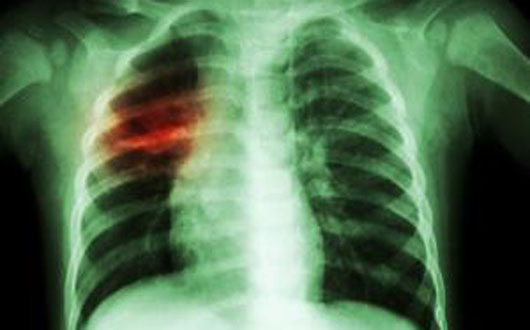UNITED NATIONS, United States, Aug 24, 2018 (BSS/AFP) – It’s the
world’s number one killer among infectious diseases, but tuberculosis has
been eclipsed by HIV/AIDS as a focus of global attention and donor funding.
When world leaders gather at the United Nations next month, they will be
asked to change that by committing to end the tuberculosis pandemic by 2030
and come up with $13 billion annually to achieve that goal.
A row between the United States and South Africa threatens, however, to
cast a pall over the first high-level meeting on tuberculosis, to be held on
the sidelines of the General Assembly meeting in New York.
Billionaire philanthropist Bill Gates whose global fund has done game-
changing work to boost public health in poor countries will be among the
headliners of the TB summit on September 26.
“TB is not a disease of the past, but if the world works together to
fight it, I have no doubt it can be,” Gates said in post on Twitter.
Two months of negotiations on a final declaration were scheduled to wrap
up in July, but the talks have dragged on after South Africa opposed US
proposals to delete language that recognizes the right of poorer countries to
access cheaper medicines.
Medical charity MSF has applauded South Africa’s stance and urged
countries to resist what it has described as “an aggressive push” by the US
pharmaceutical lobby to restrict access to low-cost drugs.
Diplomats said negotiations were continuing on a possible compromise.
Last year, the World Health Organization sounded the alarm when it said
tuberculosis had surpassed HIV/AIDS as the world’s number one infectious
killer and was the ninth cause of death worldwide.
About 1.7 million people died from TB in 2016 out of 10.4 million
worldwide who became ill from the severe lung infection, according to the
WHO.
– Will leaders turn up ? –
A 30-point final declaration under negotiation would commit governments
to end the global tuberculosis epidemic by 2030 by stepping up investment and
innovation to fight the disease.
Governments would agree to mobilize at least $13 billion a year by 2022
for treatment and care and an additional $2 billion to fund research at a
time when tuberculosis is becoming more resistant to antibiotics.
Five countries are the hardest-hit by the TB pandemic: India, which
accounts for a quarter of cases, Indonesia, China, the Philippines and
Pakistan, but it remains unclear whether these nations are sending high-level
officials to the summit.
Non-governmental organizations say leaders from key donor countries like
the United States, Britain, France, Germany and Canada must turn up for the
meeting to be ground-breaking.
“TB is not just a health issue. TB is an economic issue, a development
issue, a security issue and we need leadership from heads of states,” said
Paula Fujiwara, the scientific director of the Paris-based International
Union Against Tuberculosis and Lung Disease.
“If they don’t deliver in September, we are going to do everything in our
power to hold them accountable for the lives lost,” she said.
About 33 heads of state and government have so far said they will attend,
according to UN officials.
At the summit, leaders will pledge to provide diagnosis and treatment to
40 million people with TB from 2018 to 2022, including 3.5 million children.
“Innovation in TB is just limping along,” said Fujiwara. Only two new TB
medicines have become available in the last 50 years and there are no
effective diagnostic tests for children.
The rise in TB is partly fueled by growing worldwide rates of diabetes,
which weaken the immune system and make people more susceptible to TB.
To tackle that global health concern, the United Nations will host a
high-level meeting on September 27 on noncommunicable diseases.



